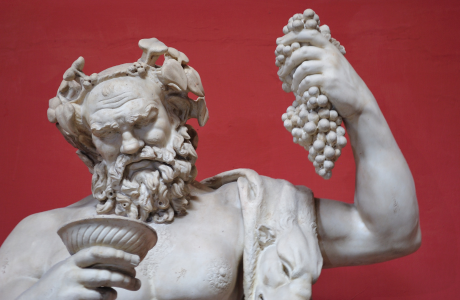I had a very enjoyable lunch with some people last Sunday. One thing we all had in common, apart from our faith in Jesus, was that each of us had been on a journey of renovating our faith. Part of that process had been giving ourselves permission to ask questions.
I say “permission” because questions are not always welcomed in church circles. In the past, I’ve been told by church leaders NOT to ask questions. So, I write this blog to encourage you to question. Here are some reasons why you should.
Questioning Is Healthy
For some Christians, the word questioning feels risky. It can seem like doubt, rebellion, or the first step towards walking away from God. Many of us were raised with the unspoken message that strong faith means having fewer questions—and that mature believers should already have everything sorted out.
Yet when we turn to the Bible itself, we find something surprising: Scripture is full of faithful people who questioned, wrestled, argued, and sought clarity. Far from condemning them, God often met them in those questions. Biblical faith is not fragile; it is robust enough to be examined, challenged, refined, and strengthened.
Healthy Christianity does not silence questions—it brings them into the presence of God.
Questioning Is Not the Opposite of Faith
One of the biggest misconceptions in Christian circles is that faith and questioning are opposites. Biblically, the opposite of faith is not questioning; it is unbelief—a refusal to trust God at all. Questioning, by contrast, often arises because we care deeply about truth.
The father who brings his suffering child to Jesus prays one of the most honest prayers in the Gospels: “I believe; help my unbelief!” (Mark 9:24)
Jesus does not rebuke him for his mixed faith. He heals his son. This moment reveals something essential: faith can coexist with uncertainty. God is not threatened by honest confession or unresolved tension. In fact, this man’s prayer shows real faith—he brings his doubts to Jesus rather than letting them drive him away.
The Bible Is Full of Questions
From beginning to end, Scripture gives us permission to ask “why,” “how long,” and “what does this mean?” The Psalms are especially bold. David asks God, “How long, O Lord? Will you forget me forever?” (Psalm 13:1)
Elsewhere, he cries, “Why, Lord, do you stand far off? Why do you hide yourself in times of trouble?” (Psalm 10:1). These are not the prayers of a rebel. They are the pleas of a worshipper who trusts God enough to be honest. Questioning, in the Psalms, is an act of relationship. Silence would signal distance; questions reveal engagement.
Even the prophet Habakkuk opens his book by questioning God’s justice: “How long, Lord, must I call for help, but you do not listen?” (Habakkuk 1:2). God does not shut him down. Instead, He responds, invites further conversation, and ultimately leads Habakkuk to a deeper confession of trust.
Jesus Encouraged Thoughtful Seeking
Jesus consistently welcomed seekers who asked sincere questions. He did not demand blind acceptance; He invited reflection, investigation, and discernment. Jesus says, “Ask, and it will be given to you; seek, and you will find; knock, and the door will be opened to you” (Matthew 7:7). These verbs assume curiosity and persistence. Seeking implies that we do not yet fully know—and that is okay.
When Jesus encountered the religious leaders, His strongest criticisms were not aimed at people with questions, but at those who claimed certainty while resisting truth. By contrast, He often engaged those who wrestled honestly.
After Jesus’ resurrection, Thomas famously doubts. Rather than rejecting him, Jesus invites him to examine the evidence: “Put your finger here; see my hands… Stop doubting and believe” (John 20:27). Thomas’s questioning does not disqualify him. It becomes the doorway to one of the strongest confessions in the New Testament: “My Lord and my God!” (John 20:28).
Growth Demands Scrutiny
The New Testament consistently encourages believers to carefully consider their beliefs. Paul urges the Thessalonian church, “Test everything; hold fast to what is good” (1 Thessalonians 5:21). Testing involves examination. Faith that has never been tested is often fragile; faith that has been examined is resilient.
Similarly, the Bereans are praised not for blindly accepting, but for thorough investigation: “They received the message with great eagerness and examined the Scriptures every day to see if what Paul said was true” (Acts 17:11). Their willingness to question—even an apostle—was considered noble. The Bible does not fear scrutiny; it invites it.
Questioning Fosters Maturity
Childlike faith is beautiful, but childish faith is not. Paul acknowledges that growth involves leaving simplistic understandings behind: “When I was a child, I talked like a child… when I became a man, I put the ways of childhood behind me” (1 Corinthians 13:11).
Mature faith often develops through times of re-evaluation. Questions about suffering, Scripture, hell, or God’s character may feel unsettling—but they often lead to a deeper, more nuanced trust.
James even reframes doubt within the context of growth, urging believers to turn to God for wisdom when they lack understanding (James 1:5). God’s response to our questions is not anger, but generosity.
Concluding Thoughts
Genuine faith is not a fragile structure that collapses under pressure, but rather a living relationship that can withstand honest struggle. Jacob wrestles with God and emerges changed—and blessed (Genesis 32:24–30). Israel itself is named after that struggle: “one who wrestles with God.” My Jewish friends are excellent at grappling with scripture.
To question is not to abandon faith. Often, it is to take faith seriously enough to seek truth, clarity, and integrity. In a complex world, Christians do not honour God by pretending everything is simple. We honour Him by bringing our whole selves—our convictions, confusions, fears, and hopes—into His presence.
Questioning becomes unhealthy when it is fuelled by cynicism or pride. But when questions are rooted in humility and a desire for truth, they can lead us closer to God rather than further away.
Faith that never asks may never grow. Faith that dares to ask, seek, and knock often finds itself rooted more deeply in the grace and truth of God. I pray that it is your continuing experience.















